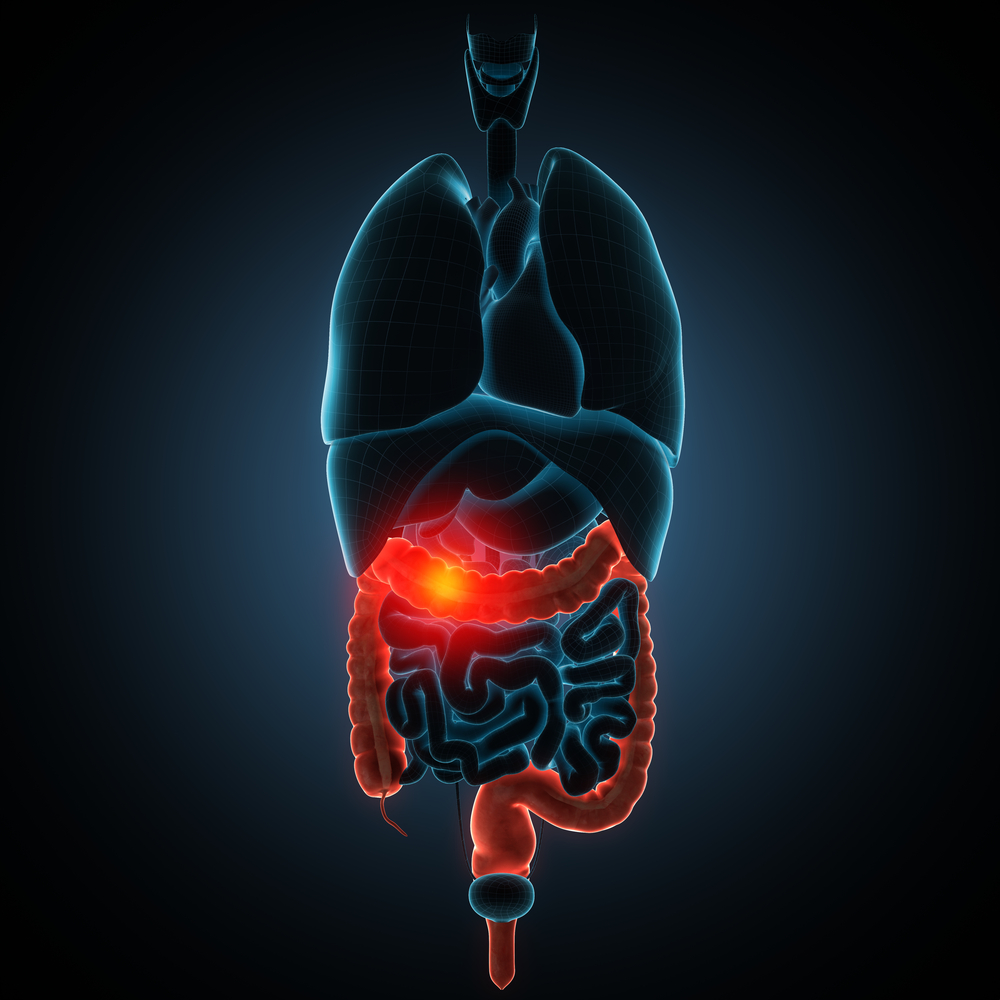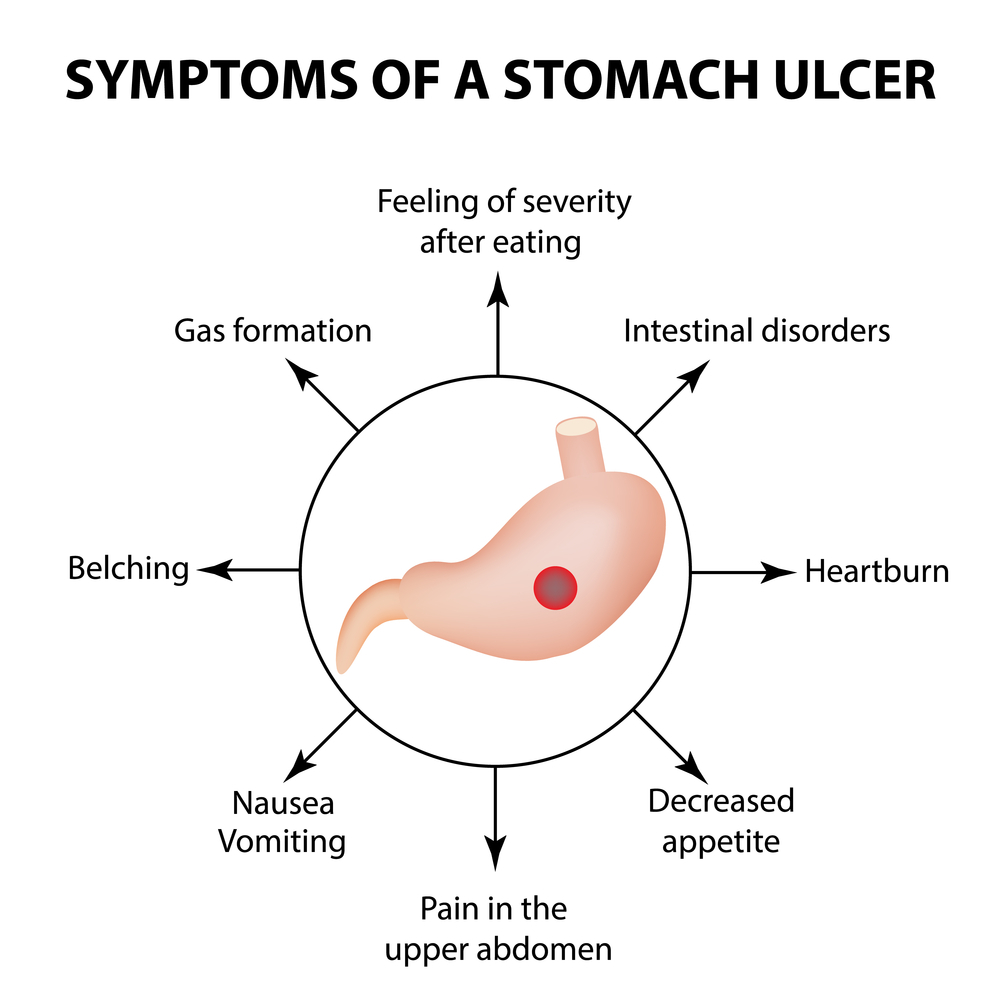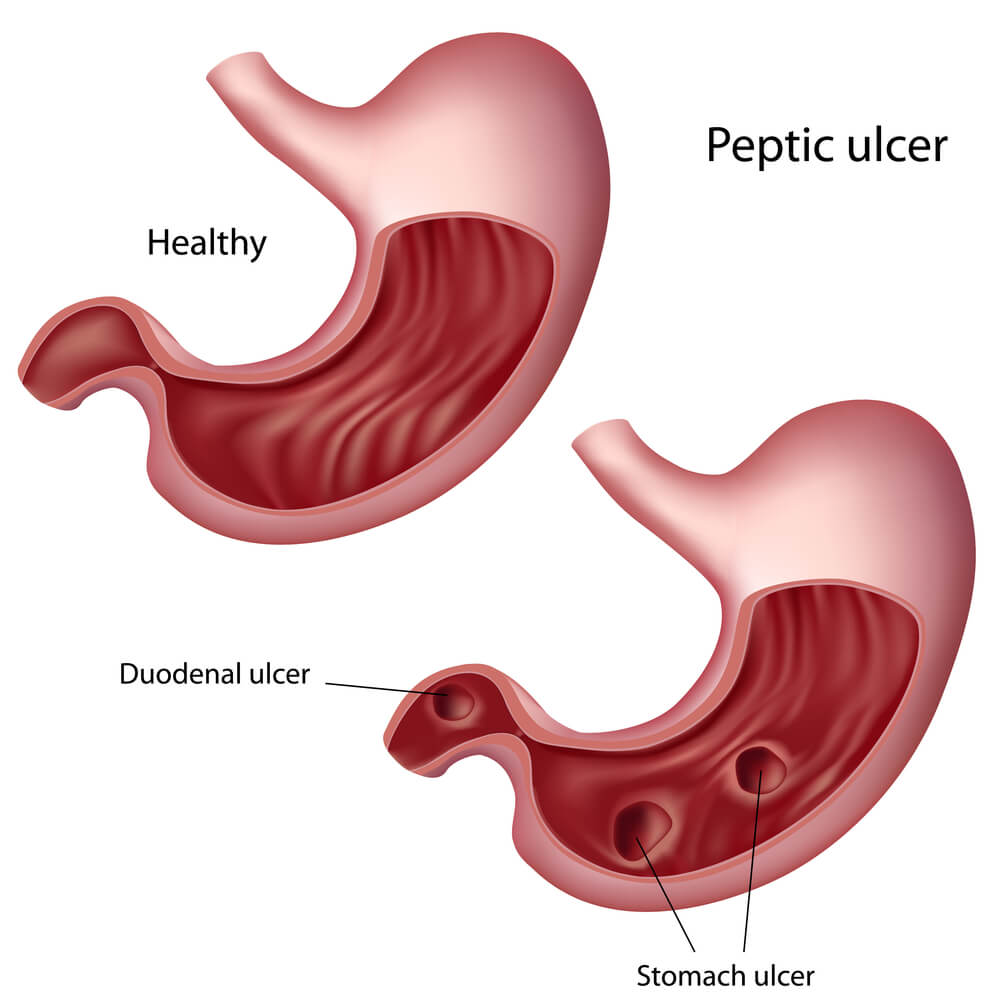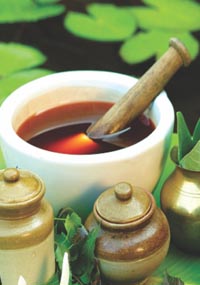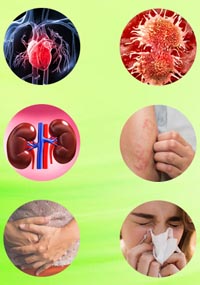Causes
Causes of acid peptic disease include:
- Helicobacter pylori: H.pylori is responsible for around 60%-90% of all gastric and duodenal ulcers.
- NSAIDs: Prostaglandins protect the mucus lining of the stomach. Non steroidal anti-inflammatory drugs (NSAIDs) such as aspirin, diclofenac and naproxen prevent the production of these prostaglandins by blocking cyclo-oxygenase enzyme leading to ulceration and bleeding.
- Smoking, alcohol and tobacco: Cigarettes, alcohol and tobacco cause an instant and intense acid production.
- Blood group O: People with blood group “O” are reported to have higher risks for the development of stomach ulcers as there is an increased formation of antibodies against the Helicobacter bacteria, which causes an inflammatory reaction and ulceration.
- Heredity: Patients suffering from peptic ulcer diseases usually have a family history of the disease, particularly the development of duodenal ulcer which may occur below the age of 20.
- Steroids/Other medicines: Drugs like corticosteroids, anticoagulants like warfarin (Coumadin), niacin, some chemotherapy drugs, and spironolactone can aggravate or cause ulcers.
- Diet: Low fiber diet, caffeinated drinks and fatty foods are linked to peptic ulcer.
- Other diseases: Chronic liver, lung and kidney diseases especially tumors of the acid producing cells all predispose to peptic ulcers. Zollinger-Ellison Syndrome (ZES) is a rare pre-cancerous condition which causes peptic ulcer disease. It is a syndrome disorder wherein tumors in the pancreas and duodenum also known as gastrinomas produce a large amount of gastrin which is a hormone that stimulates gastric acid secretion. Endocrine disorders such as hyperparathyroidism are also implicated in the development of peptic ulcers.
- Stress: Stress and neurological problems can also be associated with the Cushing ulcer and peptic ulcer.
Symptoms
Unani physicians have given detailed description of signs and symptoms related to the disease Qarahe Medah. The descriptions of the clinical features are quite similar to the modern gastero-enterologists described in their scientific researches. According to Unani literature a typical patient may present with the following features:
1. Shortness of breath (shallow breathing).
2. Fullness of vessels.
3. Syncope.
4. Cold extremities.
5. Bad odours eructation (foul smelling belching).
6. Dry tongue.
7. Vomiting.
8. Excessive perspiration.
9. Weak/ feeble pulse.
10. Severe nausea.
11. Difficulty in swallowing.
12. Feeling of discomfort and aggregation of symptoms on taking spicy food.
Treatment
In Unani system of medicine plants, animals as well as mineral origin drugs are being used clinically for the treatment of this disease without any side effect. These are time tested, centuries old, safe for use and cost effective. However, there is a need to maintain their purity, quality and safety by subjecting to scientific validation. Unani physicians recommended the following steps for the treatment of peptic ulcer.
1. Use of easily digestable food.
2. Avoid of corrosive drugs.
3. Use of astringent drugs for binding effect of ulcers.
4. Qurs Tabasheer, Qurs Mulaiyn.
5. Samagh arbi in case of oesophageal ulcer.
6. Desiccant and cictrizent drugs are effective after complete clearing of slough from ulcers.
7. Jawarish Zanjabeel.
Preventive Measure
The diet of the patient suffering from a peptic ulcer should be so planned as to provide adequate nutrition, while affording rest to the disturbed organs, maintaining continuous neutralisation of the gastric acid, inhibiting the production of acid, and reducing mechanical and chemical irritation. Milk, cream, butter, fruits, fresh raw and boiled vegetables, natural foods, and natural vitamin supplements constitute the best diet. Healthy food habit, balanced diet rich in food and vegetables are very important for keeping our body system healthy. Patient suffering from peptic ulcer should take diet rich in green leafy vegetable, fruits, milk, cheese, etc.


